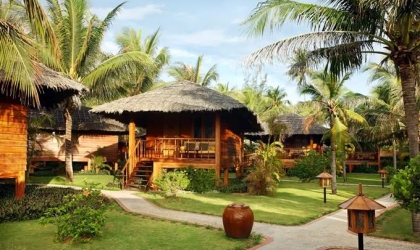Second home rental yield concern
 |
| illustration photo |
Nguyen Hoang is considering the purchase of a condotel in an under-construction resort in Ho Tram area of the southern city of Vung Tau. The developer of the property informed him that he was guaranteed an annual rental yield of over 10 per cent. Hoang, however, was not convinced, saying that “I am wondering how this yield can be achieved, especially since the resort and the second home sector recently received an oversupply warning from experts.”
Property experts meanwhile expressed their differing views on the rental yield that a second home project can provide.
Mauro Gasparotti, executive director at Alternaty Real Estate, said that “Typically second home products are unable to generate particularly lucrative rental yields, due to operational costs and market volatility.”
According to him, the degree of return-on-investment is related to the design characteristics, pricing, management, and rental programme offered by developers. Smaller and more affordable units are able to generate up to 7 to 8 per cent of the purchase price, while in more expensive and larger units, the rental return is lower, in the range of 4 to 5 per cent. High-end properties, such as large villas for example, typically generate only 2 to 4 per cent rental returns of the purchase price.
Gasparotti added that a popular choice for developers to intensify sales is to offer a rental guarantee.
“In case the guaranteed return is higher than the achieved cash flow, developers will be obligated to fund additional capital during the guaranteed period, delivering on their promises to purchasers,” he said.
“It is our opinion that in the future, some projects in Vietnam will face the situation of operational profit lower than the guaranteed return. Therefore, we encourage developers to plan for this risk in the feasibility studies and be prepared with the appropriate sinking fund from the pre-sale period,” he added.
Guaranteed products can also become risky for buyers when the majority of the current products are guaranteed only by a subsidiary of the developer, created specifically for the project, and not backed by a bank.
In several cases, the guaranteed return is incorporated in the planning stage and reflected in a higher selling price, in order to cope with the long term return commitment.
Thus, the ability of a developer to keep up with the guaranteed return is subject to market conditions, usage by the owner, the ability of the management company to target profitability, and conduct careful analysis in the planning stage.
“In recent times, the guaranteed return offered by some large players has put pressure on smaller developers to offer similar structures, in order to keep pace with competition,” Gasparotti added. “In our view, guaranteed returns are not always necessary if the product is well built, of good quality, and has long-term value appreciation. However, there are only a few well planned and executed vacation projects in Vietnam,”
Dung Duong, director of research and a consultant at CBRE Vietnam, said that the rental yield for second home and resort products was calculated on the room occupancy and room rate of each grade. The rental yield would also depend on the location, the operator, and the quality.
“I think that some four and five star second home projects, which are managed by professional operators and located in good areas, could reach a yield of 8 to 10 per cent,” Dung said.
Le Minh Kha, deputy general director of Ariyana, the operator of Furama resort in the central city of Danang, also stated that the high yield could be obtained with high-quality projects managed by professional operators.
“For these developers, they share the benefits with the buyers. This is good for the developers also as it reduces the financial pressures in the early stages of project implementation and offers better incentives to buyers,” Kha said.
VinaCapital recently reported that rental yields on the Vietnamese property market are 1.5 to 2.5 per cent higher than those in Hong Kong, Bangkok, and Singapore.
What the stars mean:
★ Poor ★ ★ Promising ★★★ Good ★★★★ Very good ★★★★★ Exceptional
Latest News
More News
- An Phat 5 Industrial Park targets ESG-driven investors in Hai Phong (January 26, 2026 | 08:30)
- Decree opens incentives for green urban development (January 24, 2026 | 11:18)
- Public investment is reshaping real estate’s role in Vietnam (January 21, 2026 | 10:04)
- Ho Chi Minh City seeks investor to revive Binh Quoi–Thanh Da project (January 19, 2026 | 11:58)
- Sun Group launches construction of Rach Chiec sports complex (January 16, 2026 | 16:17)
- CEO Group breaks ground on first industrial park in Haiphong Free Trade Zone (January 15, 2026 | 15:47)
- BRIGHTPARK Entertainment Complex opens in Ninh Binh (January 12, 2026 | 14:27)
- Ho Chi Minh City's industrial parks top $5.3 billion investment in 2025 (January 06, 2026 | 08:38)
- Why Vietnam must build a global strategy for its construction industry (December 31, 2025 | 18:57)
- Housing operations must be effective (December 29, 2025 | 10:00)
















 Mobile Version
Mobile Version